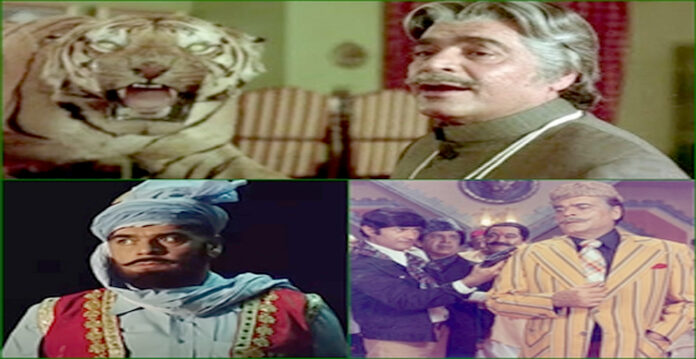It was still some years before he attained iconic status as a Bollywood villain while revealing his real identity to the bemused hero in his trademark soft yet menacing drawl, but before Ajit, whose birth anniversary falls on January 27, became the “Loin”, he had to receive a salutary lesson in dealing with big cats onscreen – from Balraj Sahni.
Ajit recalled they were shooting for costume swashbuckler “Dharti” (1970) – a remake of Tamil film “Sivandha Mann” with Rajendra Kumar stepping into the shoes of Sivaji Ganesan, and a scene had him, as the evil Diwan, coming down on a lift with a tiger on a leash to where Sahni was waiting.
However, Sahni refused to go along, noting that he had agreed to “work with humans, not beasts”, and the scene had to be shot without him.
Also Read: ‘Fighter’ villain Rishabh Sawhney quit sweets, ate 6-7 meals for his transformation
After this, Ajit, in an article for Urdu film magazine ‘Shama’ in 1975, said that he received a tongue-lashing from the veteran actor. As he said that the tiger’s mouth was stitched, Sahni retorted that he had heard Ajit was a hunter and should know that the big cat’s jaws may have been stitched shut but its paws were not.
That may have been the reason when playing DinDayal/”Loin” in “Kalicharan” (1976) – the role that made his name, there was a tiger in that famous scene when he reveals his reality – but safely stuffed.
But Ajit, who went on to refashion the Hindi film villain with his portrayal of “Cool Old Man” Teja, against the “Angry Young Man” in “Zanjeer” (1973) and many others, was an accidental villain.
Born Hamid Ali Khan in Golconda in 1922 in what was then the Nizam’s Hyderabad, he had never envisioned a film career as his soldier father wanted him to become a doctor or a lawyer.
However, he was indifferent academically and one of his exasperated teachers at the University Arts & Science College, Warangal – where P.V. Narasimha Rao was a senior – advised him to give up and either join the army like his father or become a film actor.
Ajit took the ‘advice’, lied to his father that he had passed, sold his textbooks, and with the Rs 100-odd he got, left for Bombay in the early 1940s to become a film hero, banking on his imposing stature, rough-hewn good looks, and baritone voice.
(This story is sourced from a third-party syndicated feed. Raavi Media takes no responsibility or liability of any nature. Raavi Media management/ythisnews.com can alter or delete the content without notice for any reason.)


